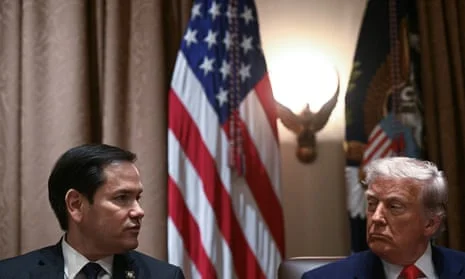
State Department Orders Staff to Report ‘Anti-Christian Bias’ Amid Sweeping Trump-Backed Religious Policy Shift
In a striking move that is sending ripples through Washington, the U.S. State Department has issued an internal directive requiring employees to report colleagues for incidents of "anti-Christian bias"—a policy stemming from President Donald Trump’s aggressive reorientation of government policy on religious expression in his return to office. The effort, unveiled through an internal cable obtained by major media outlets, opens a highly charged seven-day window for staff to report alleged religious discrimination, specifically flagging cases involving Christianity.
The cable, first reported by Politico and corroborated by The Guardian, forms part of a larger Trump administration push following a February executive order meant to 'end the anti-Christian weaponization of government.' The new task force, led institutionally by Secretary of State Marco Rubio and, more broadly, by Attorney General Pam Bondi, is charged with combing through reports and delivering initial findings in less than two weeks. The department’s demand for 'names, dates, locations' in reported incidents and the embrace of anonymous accusations recall tactics more commonly seen in the context of internal compliance crackdowns—yet here they are laced with the volatile subject of faith in public service.
At its core, the directive signals a dramatic effort to prioritize Christian grievances in federal workplaces. The memo instructs employees to report on mistreatment tied to opposition to displays such as Pride flags or to policies on personal pronouns—signaling a direct repudiation of inclusion and diversity efforts viewed by some conservatives as encroaching on their religious freedom. 'Reports should be as detailed as possible,' the cable states, referencing both domestic and embassy offices and clearly emphasizing Christianity while also, perhaps defensively, affirming that discrimination of any religion is unacceptable under federal law.
This policy, along with the president’s executive order, takes unequivocal aim at the previous Biden administration. The Trump team cited incidents such as the declaration of Easter Sunday as Transgender Day of Visibility and moves in the foster-care system as alleged examples of 'anti-Christian conduct.' The urgency of the reporting window and the planned rapid publication of findings—by April 22 for a preliminary report and a broader assessment by June—underscore the administration’s priority of redefining the federal approach to religious expression.
The move has evoked strong reactions and palpable concern within the State Department. 'It’s very Handmaid’s Tale-esque,' one unnamed official told Politico—an allusion to the dystopian scenario where state power is wielded to police belief and identity. Critics also warn of the chilling effect such a policy could have, potentially stoking a culture of suspicion and fear among staff, and exacerbating tensions over religious and LGBTQ+ inclusion that marked partisan divides during the last decade.
Yet, the new directive also highlights the enduring clash at the intersection of federal law, the First Amendment’s protection against government establishment of religion, and the powerful political constituency of conservative Christians—a core Trump supporter bloc. As the State Department task force proceeds, the eyes of the nation will be watching: is this a necessary redress of religious bias, or the government’s latest foray into regulating conscience?
What are your thoughts on this unprecedented policy shift? Does it restore balance to religious freedom in government, or set a concerning precedent? Join the conversation and share your perspectives below.